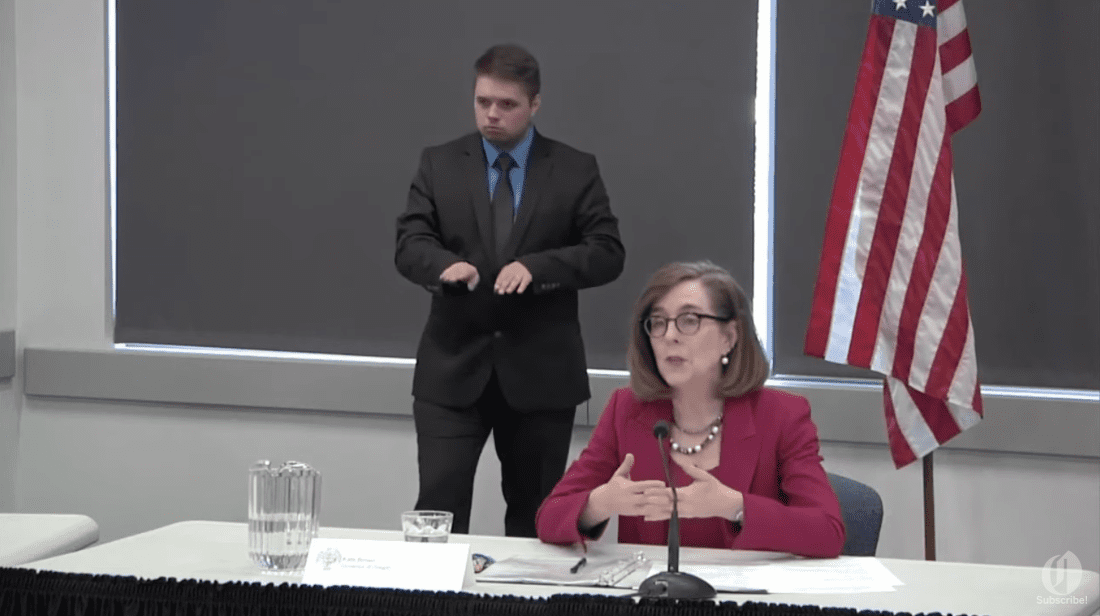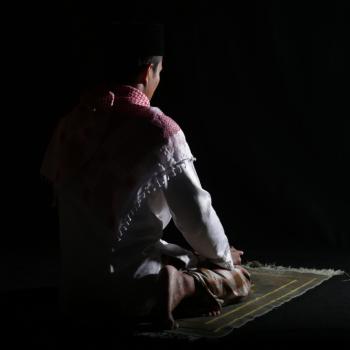Like so many other governors, Oregon’s Governor Kate Brown issued a social distancing order to prevent the pandemic from spreading in her state.

And like so many other churches, ten congregations and ministries in Oregon have brought the issue to court, claiming that the social distancing order infringes upon their religious freedom.
The motion was filed by Salem-based attorney Ray D. Hacke, who asks that the court restrain Brown from enforcing the executive order that bans gatherings of more than 25 people on the grounds that it causes “immediate and irreparable injury” to religious Oregonians. More colloquially, Hacke’s argument goes like this:
If we’re risking our lives going to church, if we survive, great. If we die, then we’re going to heaven. If we want to take that risk, then it’s on us.
The knee-jerk impulse here might be to throw up our hands, tell Hacke and his clients to do as they please, and let Darwin sort them out. But by now we all know that’s not how it works during a pandemic. Anybody exposed to the virus during one of those larger church gatherings will spread it through their community, with each new case increasing the danger to the most vulnerable members of society.
Hacke works for a right-wing non-profit called Pacific Justice Institute, which describes itself as a “legal defense organization specializing in the defense of religious freedom, parental rights, and other civil liberties.” In practice, their cases focus on the right to harass drag queens, impose gender on toys and clothing, or deny medical privacy to young people.
He says he’s chosen to file this suit specifically in Bakers County, Oregon, “for the symbolism” associated with a county that only just recorded its first case of COVID-19 yesterday. (How convenient for him, to be making his case in a county where virtually no one has first-hand experience with the virus.) He argues that counties with few cases and no deaths prove there’s a lack of sufficient risk to justify the continuing social distancing mandate.
Moreover, he argues, Oregon’s state constitution only allows the Governor to keep an executive order in place for 30 days, after which she must petition the legislature to get an extension approved. Since that hasn’t happened, he says, at this point the social-distancing order should be considered null and void.
These are the people who, faced with a fetus, insist that life is the most important of all rights. After birth, though, the right to life can be overturned based on an arbitrary point of order with nobody losing much sleep over it.
To soothe anybody who might insist that they’re not willing to die for somebody else’s idea of religious liberty, Hacke says that he thinks the churches will take the pandemic seriously. After all, they don’t want their parishioners to die, right? Of course they’ll take the recommended precautions!
At the same time, though, he contradicts himself by protesting the 25-person social-distancing limit:
If a congregation has 250 members, what are they going to do? Hold 10 services? That’s just not realistic. It’s an infringement on religious liberty.
So much for those expert guidelines, huh, Ray?
Fortunately, the Governor’s office is not intimidated. Spokesperson Liz Mereh responded by encouraging churches and other religious organizations to “tend to the spiritual needs of their congregations without putting the health and safety of their entire communities at risk.” And Brown continues to take a cautious approach to rolling back quarantine measures:
Reopening any part of our state comes with risk. This virus is still very dangerous and it still poses a great threat. Until there is a vaccine, unfortunately, we will not be going back to life as we knew it. Not here in Oregon or frankly anywhere. I know this can be a really tough reality to face.
State epidemiologist Dr. Dean Sidelinger recommends that churches try video conferencing, live-streaming, or drive-in services before they fall back on placing an entire community at risk in the name of in-person assembly. Makes sense since a Facebook livestream would require only one service and no attendees.
But then again, it’s so much harder to pass around a collection plate in Zoom.
(Screenshot via YouTube)




It’s Moving Day for the Friendly ..."
It’s Moving Day for the Friendly ..."
It’s Moving Day for the Friendly ..."
It’s Moving Day for the Friendly ..."